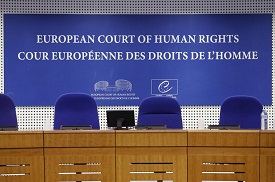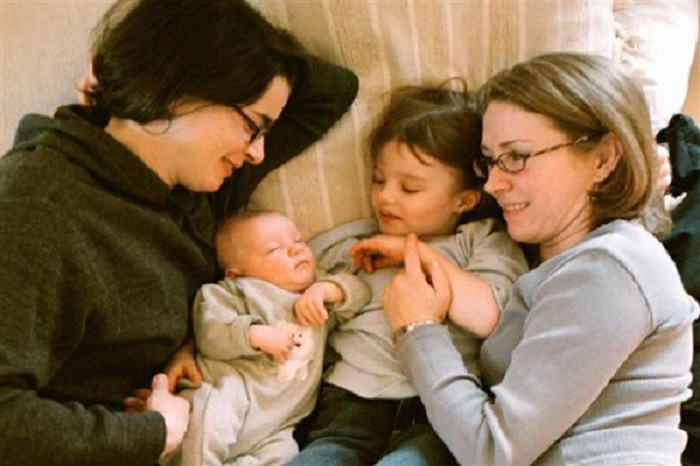News
ECHR: Chamber Judgment of 27.1.2015 in the case of Paradiso and Campanelli vs Italy.
Published on: 02/02/2015
 In the case of Paradiso and Campanelli vs Italy (application no. 25358/12), the European Court of Human Rights, with its Judgment of 27.1.2015, held that Italy had violated the Article 8 of the European Convention on Human Rights (right to respect for private and family life). The case concerns the placement of a child in guardianship, firstly in a children’ s home and, afterwards to a foster family. The child was born in Russia, by a surrogate mother, following a gestational surrogacy contract entered into by the couple (applicants). It subsequently transpired that they had no biological relationship with the child.
In the case of Paradiso and Campanelli vs Italy (application no. 25358/12), the European Court of Human Rights, with its Judgment of 27.1.2015, held that Italy had violated the Article 8 of the European Convention on Human Rights (right to respect for private and family life). The case concerns the placement of a child in guardianship, firstly in a children’ s home and, afterwards to a foster family. The child was born in Russia, by a surrogate mother, following a gestational surrogacy contract entered into by the couple (applicants). It subsequently transpired that they had no biological relationship with the child. The applicants, Donatina Paradiso and Giovanni Campanelli, were a married couple, that, after unsuccessfully attempting to use in vitro fertilisation, decided to enter into a surrogacy contract in Russia. According to Russia’s law, after the birth of the child (2011), the applicants were registered as its legal parents, without any indication that the child had been born through a surrogacy arrangement.
After the arrival of the couple in Italy with the child, G. Campanelli asked the municipal authority to register the birth, but the Italian Consulate of Moscow informed the Campobasso Minors Court, the Ministry of Foreign Affairs and the Collerorto municipality that the file on the child’s birth contained false information. The couple was charged with “misrepresentation of civil status”, and violation of the adoption legislation.
After a few months, in August 2011, it was proved that G. Campanelli, was not the biological father of the child. So, the Minors Court decided (October 2011) that the child should be taken away from the applicants, and placed under guardianship, on the ground that there was no biological relationship between them and that there existed doubts as to the applicants’ child-raising capacities, the conduct of Ms Paradiso and Mr Campanelli having been contrary to the law. The baby was placed in a children’s home without the applicants being informed of his location, and, in January 2013, the baby was entrusted to foster parents.
In April 2013 the refusal to register the Russian birth certificate was confirmed on the ground that its registration would be contrary to public policy, given that the certificate was inaccurate, there being no biological relationship between the child and the applicants. The latter unsuccessfully submitted that they had acted in good faith, and claimed to have been unaware that Mr Campanelli’s seminal fluid had not been used in the Russian clinic.
The couple complained in front of the ECHR that there had been a violation of the Article 8 of the Convention, given the child’s removal from them and the refusal to acknowledge the parent – child relationship by registering the child’s birth certificate in Italy.
The Court dismissed, for failure to exhaust domestic remedies, the complaint submitted by Ms Paradiso and Mr Campanelli alleging that it was impossible to have the child’s birth certificate registered in Italy, as the applicants had not appealed on points of law.
With regard to the complaint concerning the child removal of the applicants, the Court acknowledged the existence of a de facto family life between the couple and the child, held that Article 8 was applicable in this case and declared this complaint admissible. Although Ms Paradiso and Mr Campanelli had spent only six months with the baby, that period had covered important stages in his young life and they had behaved as parents towards him during that period.
The Court considered, firstly, that the measures to remove the child and place him under guardianship amounted to interference in the applicants’ private life and had been in accordance with the law. Indeed, the domestic courts’ application of Italian law in concluding that the child had been abandoned had not been arbitrary, and the measures taken had been based on provisions of domestic law. In addition, the contested measures pursued the legitimate aim of “prevention of disorder”, in so far as the applicants’ conduct had been contrary to the law. Despite the fact that the Court noted that the Italian authorities decided to remove the child in order to put an end to an unlawful situation, as a result of the actions of the couple, the Court stated that the reference to public order could not be used anytime and considered as giving carte blanche for any measure, as the State had to take into consideration the best interests of the child. The Court reiterated that the removal of a child from the family setting was an extreme measure, which could be justified only in the event of immediate danger to the child and that the Italian authorities had failed to strike a fair balance between the interests at stake, in violation of Article 8. Nevertheless, the Court noted that this finding of a violation was not to be understood as obliging the Italian State to return the child to the applicants, given that he had undoubtedly developed emotional ties with the foster family with whom he had been living since 2013.
The Court held that Italy was to pay the applicants 20,000 euros (EUR) in respect of non-pecuniary damage and EUR 10,000 in respect of costs and expenses.
Source: http://www.biodiritto.org/index.php/item/610-parad
- Published on: 28/06/2016
- Gov. John Bel Edwards has reversed course from his predecessor and agreed to create regulations governing surrogacy births in Louisiana. Read more
- Published on: 18/05/2016
- Experts point out that serious questions are raised regarding the birth of a child by an elderly woman Read more
- Published on: 18/05/2016
- A controversial geneticist, Severino Antinori, who became known for helping women over 60 years old to become pregnant, was arrested for stealing eggs from a patient. Read more






